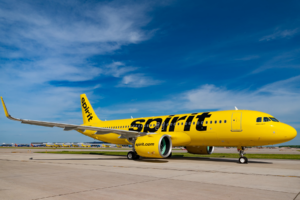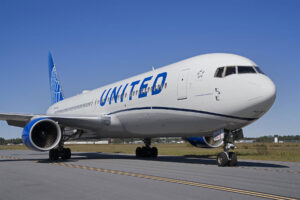Corporate Travel Braces For Marriott-Starwood Merger Effects

While some worry about the mega-hotel’s international reach, others say that there is plenty of competition.
Ahead of the Marriott-Starwood merger, a group of travel professionals are trying to understand how the mega merger will affect them. However, their concerns are less about points and loyalty status and more about how business travelers will be affected by the changes.
In a recent report published by Skift, the audience is meeting this latest change with a mixture of trepidation and optimism. While some corporate booking agents are preparing for prices to increase, others say that there is still plenty of competition to go around.
The arguments for concern are led by a spurt of industry consolidation, of which Marriott and Starwood are the largest to come together. According to a report by Carson-Wagonlit subsidiary CWT Solutions Group, five major hotel transactions have taken place over the last two years, including Marriott’s purchase of African chain Protea, Intercontinental Hotel Group’s purchase of Kimpton and Accor purchasing the 115 Fairmont hotels. With the trend to consolidate, the report suggests travel agents will have a harder time negotiating rates for corporate travelers.
To make things more complex, the Marriott-Starwood merger gives the new company a majority hold of hotel rooms in many international markets. Some of the cities where the combined hotel company will control one-third to one-half of hotel rooms include Chicago, Mexico City, New York and Shanghai.
“For many of the convention markets and the really large corporate travel cities, it really has been Marriott and Starwood,” Bjorn Hanson, professor of hospitality and tourism at New York University, told Skift. “Instead of those two companies competing with each other for corporate business, there is one. In some markets where Hilton or InterContinental isn’t as strong, it just changes the competitive dynamic.”
Although the majority hold is of concern, other experts in the community say there will still be plenty of competition left in the industry. With major brands holding a majority of rooms, opportunities exist for smaller chains and boutique properties.
“Other major brands, as well as secondary and tertiary properties will look to offer attractive rates, and may seek to include a greater number of amenities such as WiFi, breakfast and parking in their negotiations,” said Mike Qualantone of American Express Global Business Travel. “These amenities offer travelers greater convenience and enable greater savings for companies.”
Additional concerns include customer loyalty to their respective hotel chains, as well as additional consolidation between now and the actual closing.
[Photo: AP]























Not really looking forward to this merger at all. Is Marriott gonna downgrade all the SPG benefits? Sigh. I wish they hadn't merged.
They will certainly not control 1/3 of the hotel rooms in SHA or other places. At the utmost 1/3 of the rooms these agencies market in such cities.
If you just look at it as Marriott + SPG along with Hilton and IHG, of course it looks like a lot less choice. But if, pun intended, you add Choice Privileges and Club Carlson and Wynhdam Rewards and Best Western and La Quinta and Accor, etc, etc, to the list, then Marriott and SPG becoming one seems like a lot smaller change relatively speaking. (I didn't mention Hyatt only because of their fairly small "footprint". But in some bigger cities, they're a factor too.) Also, do Marriott and SPG really represent one-third to one-half of ALL hotel rooms in NYC, or just of CHAIN hotel rooms in NYC? There's a ton of hotel rooms in NYC at independent hotels.